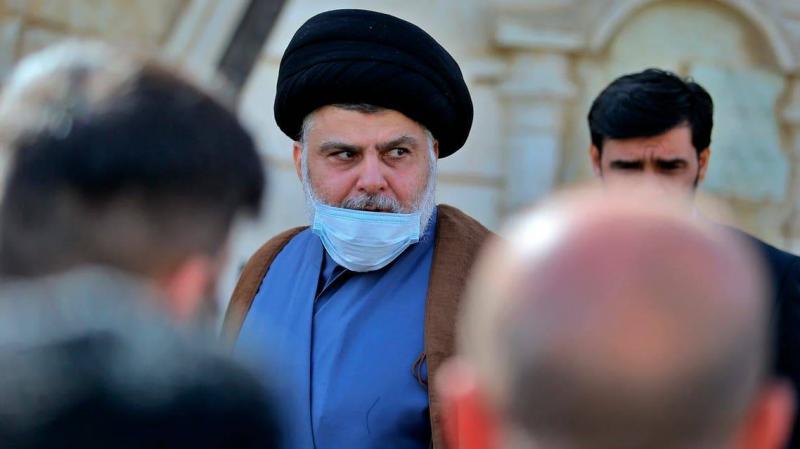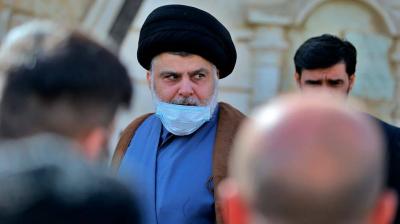Observers are currently focusing on Iraq after the High Electoral Commission confirmed the results of the parliamentary elections held last October, affirming that the Sadrist bloc, led by Shiite cleric Muqtada al-Sadr, topped the results. This confirmation came after several weeks of tension that peaked when Prime Minister Mustafa al-Kadhimi survived an assassination attempt at the beginning of last month (November 7, 2021). This situation prompted many armed factions affiliated with the Popular Mobilization Forces, politically and electively represented by the Fatah Alliance, to escalate their rhetoric against the results.
### The Danger of Escalation
As the commission is expected to send the final results to the Federal Court for ratification within a maximum of ten days, fears of escalation are rising, especially if al-Sadr decides to establish a majority coalition in parliament through alliances with parties outside the Shiite factions, which would be unprecedented. Many analysts speculate that the Sadrist leader might form a coalition with the outgoing Speaker of Parliament, Mohammed al-Halbousi, who holds 37 seats, and the Kurdistan Democratic Party led by Masoud Barzani (holding 31 seats).
### Who Will Yield First?
Political analyst Hamdi Malik from the Washington Institute for Near East Policy mentioned in a conversation with AFP that "it’s a matter of knowing who will yield to the pressure of the other side," referring to the Popular Mobilization Forces or the Sadrist Movement. He added, "So far, neither side has yielded to the other, which contributes to the heightened risks of escalation and confrontations at this stage."
In the meantime, negotiations to form the next government will continue; however, they are wading through a very complicated cycle given Iraq's multi-sectarian and multi-religious context, where several parties control state mechanisms. They might ultimately reach a satisfactory agreement regardless of the number of seats each party holds.
### Compromise or Majority Government?
Despite al-Sadr's previous positions clearly opposing the calls from Iranian-affiliated factions that demand traditional solutions and compromises for all parties, he has tirelessly reiterated over the past weeks that his bloc will choose the prime minister, calling for the formation of a "majority" government comprising the parties that received the highest number of votes. However, the winds of the compromises experienced in previous government formations in the country may not favor the outright winner in the parliamentary elections.
It is noteworthy that the head of the High Commission, Judge Jalil Adnan, announced yesterday during a press conference that "there is a change in one seat" in five provinces compared to the preliminary results announced on the eighth of this month, confirming that "the Sadrist movement obtained 73 seats in the parliamentary elections" out of a total of 329 seats in the House of Representatives.
The commission is now expected to refer the results to the Federal Court, which will ratify them. Following this, President Barham Salih will call for the new Parliament to convene within a maximum period of 15 days, headed by the oldest deputy, to elect the Speaker of the Parliament and his two deputies. This will be followed by another session to elect the President of the Republic, who will then assign the largest parliamentary bloc to nominate a prime minister, to be completed within a maximum period of one month.




